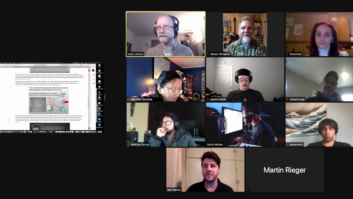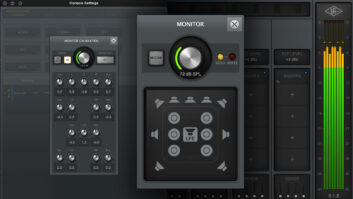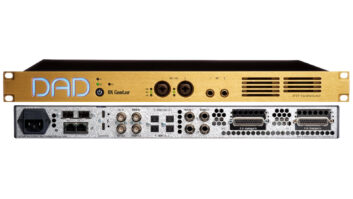Student Michael Nielsen Scores “Tom Clancy’s Splinter Cell V: Conviction”
Pictured in his game audio recording and production studio is Berkleemusic student Michael Nielsen.
Boston, MA, January, 2008 — Berkleemusic.com, the online division of the renowned Berklee College of Music, has announced “Introduction to Game Audio,” a new course designed to address the phenomenal job opportunities in today‘s $14 billion game industry.
In “Game Audio,” students will learn the basics of sound effects libraries and working with animation, overcoming technical hurdles, and explore the business side of the video game industry. By the end of this course, students will be well prepared to create videogame soundtracks incorporating dialogue, sound design, and their own original music.
What does it take to succeed in the growing game audio business? According to Berkleemusic student and composer Michael Nielsen, it takes an open mind, a collaborative spirit, and audacity. Nielsen was asked to score Tom Clancy‘s Splinter Cell V: Conviction, the highly anticipated Xbox 360 game produced by award-winning game developer Ubisoft Montreal. “I always thought my first video game would be like Pac-man Jr.– MIDI blips and beeps with a simple melody counterpoint thing,” says the 33-year-old. “As it turned out, my first video game was one of the top franchises out there.”
That’s when he began looking for learning opportunities. But the prospect of balancing work, commuting, and classroom time seemed discouraging. “I would’ve had to stop my life, go to school again, and then come back out,” he says. The flexibility and breadth of course offerings at Berkleemusic fit the bill perfectly. “It was a lot like getting a personal trainer.”
Michael Nielsen‘s studies have increased his versatility and his speed, two indispensable skills in the game audio world. “On a busy week, we’re doing five to ten minutes of fully produced, finished video game music. No one ever thinks to ask, ‘Can you do this?‘ They just say, ‘This is what I want.‘ And you have to deliver it very quickly.”
By the end of Introduction to Game Audio, students are prepared to:
• develop sounds and music for interactive environments
• write and edit music interactively
• create videogame soundtracks incorporating dialogue, sound design, and music
• work with a variety of tools to complete game audio
• work collaboratively and under the direction of a team leader
• complete and implement an Audio Design Document
Enrollment is now open for the Winter Term at Berkleemusic.com, beginning January 7, 2008.







